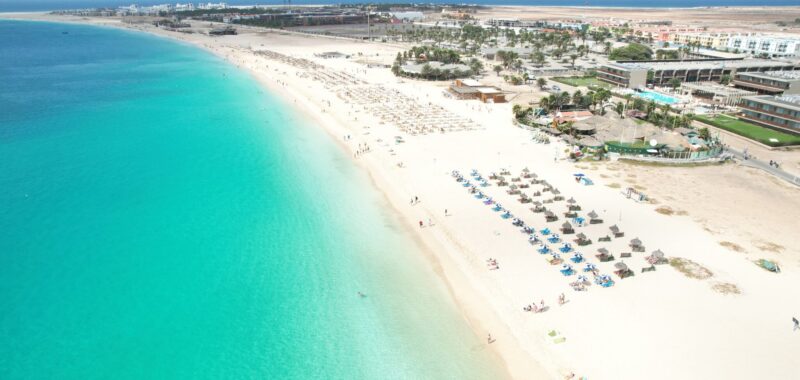Surging demand for package holidays helped easyJet achieve record-breaking profits this summer. On Wednesday, the British budget airline reported an 11% rise in earnings for the all-important quarter from July through September.
Pre-tax profits for the year to the end of September were £610 million ($769 million), comfortably up on the £455 million ($574 million) posted a year earlier. The numbers contrast easyJet’s two biggest low-cost rivals Ryanair and Wizz Air – which both saw profitability soften during the period.
While multiple factors are at play, some of the strongest tailwinds came from easyJet’s package holiday division. This rapidly growing business bundles flights, accommodation, and other vacation products to provide consumers with a one-stop shop to build a customized getaway.
Earnings from the subsidiary soared by 56% and now represent almost a third of company-wide profits. EasyJet Holidays customers rose 36% year-on-year to reach 2.6 million.
Speaking on Wednesday, Kenton Jarvis, easyJet’s CFO and incoming CEO shared his “ambitious target” to grow holiday customer numbers by a further 25% in the next financial year. If realized, this would see the company serve more than 3.2 million customers annually.
Jarvis highlighted longer leisure routes to North Africa and the Canary Islands as key growth markets for the brand. These destinations will be particularly important revenue generators during the leaner winter months when the company usually makes a net loss.
In the first half of 2025, the average length of an easyJet flight will rise by 6%. This is the result of enhanced frequencies to existing airports and all-new services. For example, just last week easyJet announced its first route to sub-Saharan Africa. The airline will fly from its London Gatwick hub to Sal in Cape Verde three times a week from March 31. Average flight times will be around six hours.
The easyJet Holidays Effect
Johan Lundgren, easyJet’s outgoing CEO, launched the holidays venture in 2019. He tapped former colleague and long-time TUI Group executive Garry Wilson to head up the operation.
For his part, Wilson has previously described easyJet Holidays as having a business model “that cannot be replicated.” He cites core strengths including a robust leisure network, strong brand recognition and trust, and large investments in digital-first booking platforms. Leveraging the existing easyJet brand also results in low overheads, including minimal customer acquisition costs.
A further ingredient in the easyJet Holidays secret sauce is what Wilson calls “an agile, low-risk product.” The company offers a portfolio of more than 5,000 hotels with little or no commercial exposure. Over 60% of bookings at easyJet Holidays are through directly contracted hotel partners. This has resulted in what Wilson describes as “long-term strategic relationships with key hotel partners throughout Europe.”
The uncertainty of the pandemic made package holidays an attractive choice for many British holidaymakers. Greater consumer protection laws when booking a package trip provide an important safeguard should something go wrong. The ability to part-pay over several months at little or no extra cost is also a bonus for families and other travelers on a budget.
EasyJet Carves Out a Cash Generator
To the surprise of some industry watchers, easyJet’s lucrative foray into the package holiday business has not been copied by its largest low-cost rival.
Ryanair – Europe’s biggest airline by most metrics – said it won’t rush into the package market until it maximizes traffic with its current aircraft order. It has more than 300 planes pending delivery from Boeing.
However, Ryanair Group CEO Michael O’Leary appears to be attracted to the high yields attached to holiday packages, especially with regular flight-only fares softening.
“I wouldn’t rule out setting up a holidays division. The holiday product is probably a reasonable way of charging higher fares and yields and for wrapping it into a package,” he recently told The Telegraph.
In recent months, Ryanair has made peace with several online travel agencies. It partners with OTAs including Expedia, lastminute.com, and Love Holidays, with the ability to create flight and hotel package-style combinations. Longer term, it remains to be seen if Ryanair is happy to have these middlemen in the mix, or if it will want to capture more margin for itself.
EasyJet Positive on 2025 Outlook
Looking ahead, easyJet management said the travel outlook for 2025 was positive. Lundgren reiterated the airline’s commitment to achieving regular annual profits of £1 billion ($1.26 billion).
In the medium term, easyJet Holidays aims to grow its UK market share from 5% in 2023 to 10%. The subsidiary is also ramping up its commercial presence in new source markets including Switzerland, France, and Germany.
On a more personal note, Lundgren used his final earnings day at easyJet to reflect on seven years at the carrier. “I am pleased to be leaving a strong easyJet, the future for the company is bright and I look forward to seeing Kenton delivering his ambitious plans, generating positive shareholder returns while making low-cost travel easy for millions of customers.”
Airlines Sector Stock Index Performance Year-to-Date
What am I looking at? The performance of airline sector stocks within the ST200. The index includes companies publicly traded across global markets including network carriers, low-cost carriers, and other related companies.
The Skift Travel 200 (ST200) combines the financial performance of nearly 200 travel companies worth more than a trillion dollars into a single number. See more airlines sector financial performance.
Read the full methodology behind the Skift Travel 200.

